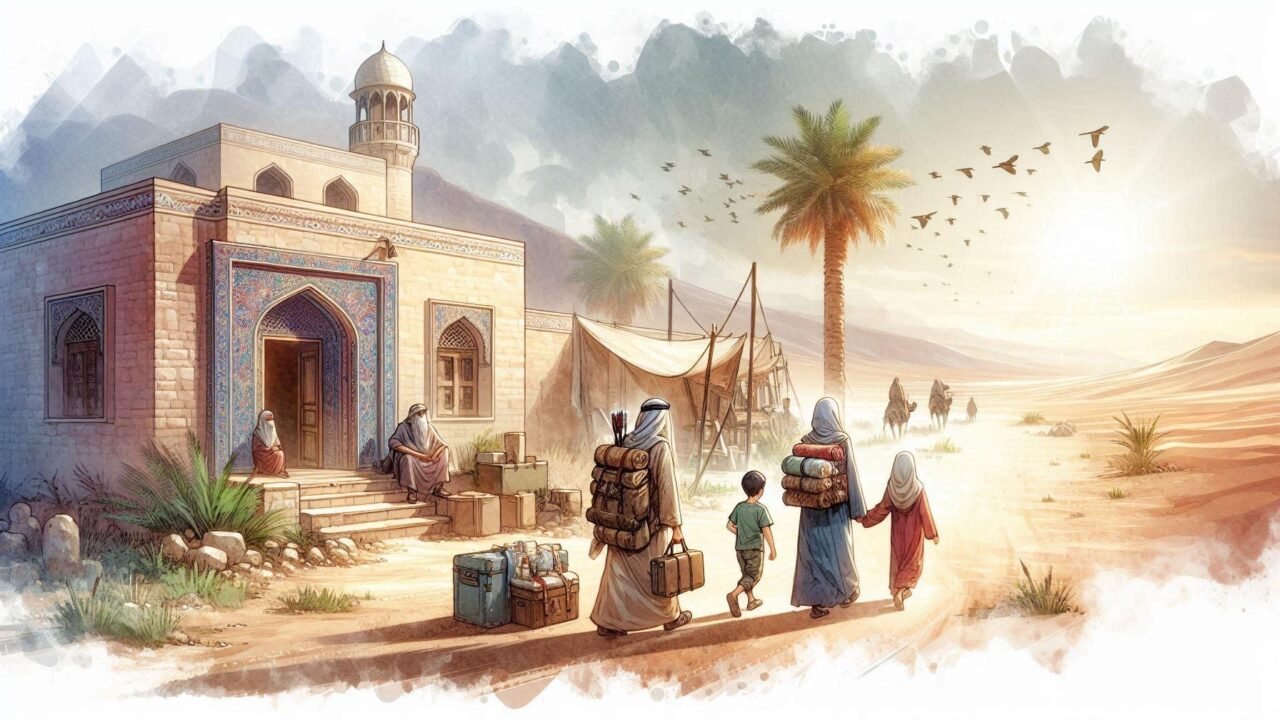In the first chapters of 1 Nephi, we witness the journey of Lehi and his family as they depart into the wilderness and establish a civilization in the new world. One notable observation during this time of privation is the emphasis placed on obtaining knowledge and building relationships. This focus on spiritual knowledge and relationships serves as a reminder of the true value and happiness they bring into our lives.
And it came to pass that he departed into the wilderness. And he left his house, and the land of his inheritance, and his gold, and his silver, and his precious things, and took nothing with him, save it were his family, and provisions, and tents, and departed into the wilderness.
1 Nephi 2:4
This verse provides us with two lists related to their exodus.
First is what was left behind:
· His house
· The land of his inheritance
· His gold and silver
· His precious things
Second is what Lehi took into the wilderness:
· His family
· Provisions
· Tents
Nephi stresses in his writing nothing else was taken besides.
Let’s take a closer look at the meaning behind what Lehi left behind so we can better appreciate the sacrifice of Lehi’s family and perhaps better relate their experience to our own lives.
First, he left his house. Our houses represent the aspects that are fundamental to our lives. Our houses represent places of safety and security. We often return to our houses when we seek refuge from that only physical dangers from the environment such as storms the weather, and other environmental dangers; we also use them as we seek emotional spiritual refuge from the challenges of our lives. We use our houses to store physical treasures as well as our mental treasures during our lives. Her homes become the backdrop for so many of our emotional experiences and our most treasured memories. It is often the physical location helps to recall these most treasured memories is often why can be difficult to leave behind house.
Second Lehi left land with his inheritance. We think about the term inheritance represents connection to those who have gone before as well as our connection to our posterity. It is also of particular importance to those of the house of Israel is its connection to patriarchs (Abraham Isaac and Jacob for example) promises the Lord made to them their posterity. As a father and the parents we sacrifice parable throughout our lives to add to the inheritance that we receive, and magnify it, as we strive to pass that inheritance on our children.
Lehi left behind his gold and his silver. Throughout the scriptures, gold and silver must be sanctified to become symbols of God (i.e. refined, placed in the temple, used for sacred means), otherwise they are often symbols of idolatry, corruption, and apostasy. Despite the gold and silver being part of the wealth of Lehi, it will ultimate represent this courting influence. Laman and Lemuel will view it as part of their earthly inheritance that the depart from Jerusalem robs them of. For Lehi and Nephi, they will literally give up the gold and the sliver in order to gain the scriptures.
Precious things. This is probably the most instructive phrase to me. If something is truly precious, would it have been left behind. As Lehi’s family departs, I think they come to discover what is truly precious to them.
What they take with them
One notable observation during this time of privation is the emphasis placed on obtaining knowledge and building relationships. This focus on spiritual knowledge and relationships serves as a reminder of the true value and happiness they bring into our lives.
Seeking Knowledge: The Brass Plates
Lehi and his family return to Jerusalem to obtain the brass plates, which contain valuable records and scriptures. This act highlights their desire for knowledge and understanding. The brass plates serve as a source of spiritual guidance and wisdom, providing a foundation for their faith and posterity.
Building Relationships: Zoram and Ishmael’s Family
During their journey to obtain the brass plates, Lehi and his family bring back Zoram, who becomes an integral part of their family. This act demonstrates the importance of establishing relationships beyond their immediate family. In later generations, the Zoramites are known for their obedience, aligning with Nephi’s posterity. However, there are a few instances where some Zoramites deviate from this path.
Additionally, Lehi and his family also go back for Ishmael and his family. This decision highlights the significance of building both familial and friendship relationships. By including Ishmael’s family, they expand their social circle and create a sense of community in their new world.
Appreciating True Value and Happiness
Reflecting on Lehi and his family’s actions, we can draw parallels to our own lives. Often, we take for granted the blessings and circumstances we enjoy. It is easy to overlook the true value and happiness that comes from spiritual knowledge and worthwhile learning. These aspects enrich our lives and provide a deeper understanding of ourselves and the world around us.
Similarly, the relationships we cultivate with our families and others play a vital role in our overall well-being. These connections bring joy, support, and a sense of belonging. By nurturing these relationships, we create a strong foundation for a fulfilling life.
Conclusion:
The story of Lehi and his family serves as a reminder of the importance of seeking spiritual knowledge and building meaningful relationships. Just as they prioritized obtaining the brass plates and bringing back Zoram and Ishmael’s family, we should also value the knowledge and wisdom that enrich our lives. Additionally, we should cherish and invest in the relationships that bring us joy and a sense of belonging. By doing so, we can find true value and happiness in our lives.

